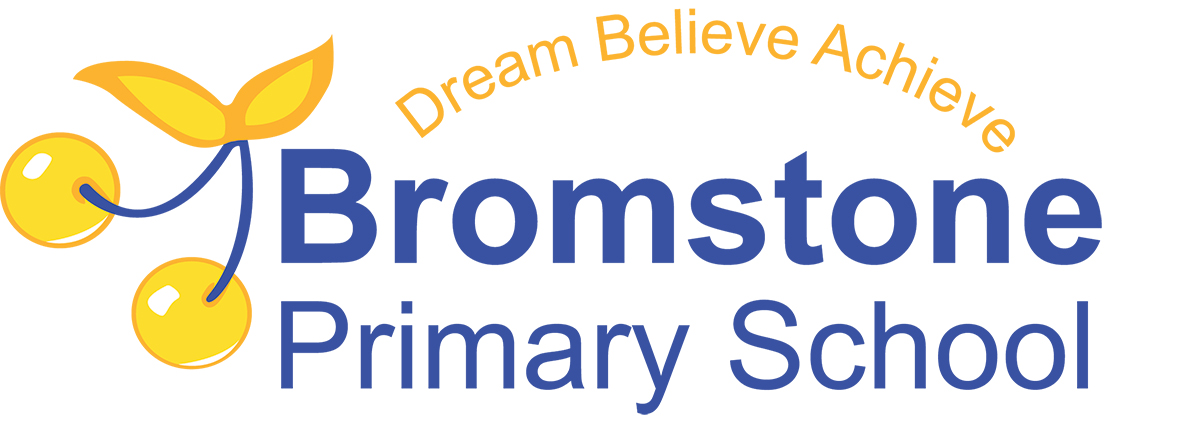
Bromstone Primary School
Teaching for Mastery in Maths
What does it mean to master mathematics?
A mathematical concept or skill has been mastered when a pupil can represent it in multiple ways, has the mathematical language to communicate related ideas, and can independently apply the concept to new problems in unfamiliar situations.
Mastery is a journey and long-term goal, achieved through exploration, clarification, practice and application over time. At each stage of learning, pupils should be able to demonstrate a deep, conceptual understanding of the topic and be able to build on this over time.
This is not about just being able to memorise key facts and procedures, which tends to lead to superficial understanding that can easily be forgotten. Pupils should be able to select which mathematical approach is most effective in different scenarios.
All pupils can achieve in mathematics
A positive teacher mindset and strong subject knowledge are key to student success in mathematics. It is not the case that some pupils can do mathematics and others cannot.
No pupil should be left behind. The focus is keeping up over catching up. By making high expectations clear and emphasising the value of mathematics education, pupils are encouraged to build confidence and resilience.
Abilities are neither fixed nor innate, but can be developed through practice, support, dedication and hard work. Natural talent is just a starting point and does not determine who has more or less potential to achieve. A positive teacher mindset in maths encourages a love of learning and resilience that enables everyone to achieve.
All pupils are entitled to learn key concepts and skills
A scheme of work based around the principles of mastery really can be suitable for all. Pupils should have the opportunity to stay together and work through new content as a whole group. While mastery schemes of work may be challenging for some, the vast majority should be aiming for this standard. In extreme cases, where students have considerable learning difficulties, individual schools may want to put some alternatives in place.
It is important that high-attaining pupils fully understand key number concepts, rather than simply memorise a process. This will reap its rewards in the future at KS3, GCSE and A-level. Teachers can extend high-attaining students through depth, as opposed to acceleration onto new content.
Deepen understanding before accelerating content coverage
All pupils benefit from deepening their conceptual understanding of mathematics, regardless of whether they've previously struggled or excelled. Pupils must be given time to fully understand, explore and apply ideas, rather than accelerate through new topics. This approach enables pupils to truly grasp a concept, and the challenge comes from investigating it in new, alternative and more complex ways.
Concrete, pictorial, abstract
Objects, pictures, words, numbers and symbols are everywhere. The mastery approach incorporates all of these to help pupils explore and demonstrate mathematical ideas, enrich their learning experience and deepen understanding. Together, these elements help cement knowledge so pupils truly understand what they’ve learnt.
All pupils, when introduced to a key new concept, should have the opportunity to build competency in this topic by taking this approach. Pupils are encouraged to physically represent mathematical concepts. Objects and pictures are used to demonstrate and visualise abstract ideas, alongside numbers and symbols.
Concrete – Students should have the opportunity to use concrete objects and manipulatives to help them understand and explain what they are doing.
Pictorial – Students should then build on this concrete approach by using pictorial representations. These representations can then be used to reason and solve problems.
Abstract – With the foundations firmly laid, students should be able to move to an abstract approach using numbers and key concepts with confidence.
Problem solving
Mathematical problem solving is at the heart of our approach. Pupils are encouraged to identify, understand and apply relevant mathematical principles and make connections between different ideas. This builds the skills needed to tackle new problems, rather than simply repeating routines without a secure understanding.
Mathematical concepts are explored in a variety of representations and problem-solving contexts to give pupils a richer and deeper learning experience. Pupils combine different concepts to solve complex problems, and apply knowledge to real-life situations.
Reasoning
The way pupils speak and write about mathematics transforms their learning. Mastery approaches use a carefully sequenced, structured approach to introduce and reinforce mathematical vocabulary. Pupils explain the mathematics in full sentences. They should be able to say not just what the answer is, but how they know it’s right. This is key to building mathematical language and reasoning skills.
Fluency
Pupils should be able to recall and apply mathematical knowledge both rapidly and accurately. However, it is important to stress that fluency often gets confused for just memorisation – it is far more than this. As well as fluency of facts and procedures, pupils should be able to move confidently between contexts and representations, recognise relationships and make connections in mathematics. This should help pupils develop a deep conceptual understanding of the subject. Frequent, carefully designed, intelligent practice will help them to achieve a high level of fluency.
Secure the fundamentals
A large proportion of time is spent reinforcing number to build competency and fluency. Number is usually at the heart of any primary mastery scheme of learning, with more time devoted to this than other areas of mathematics. It is important that pupils secure these key foundations of maths before being introduced to more difficult concepts.
This increased focus on number will allow pupils to explore the concepts in more detail and secure a deeper understanding. Key number skills are fed through the rest of the scheme so that students become increasingly fluent.